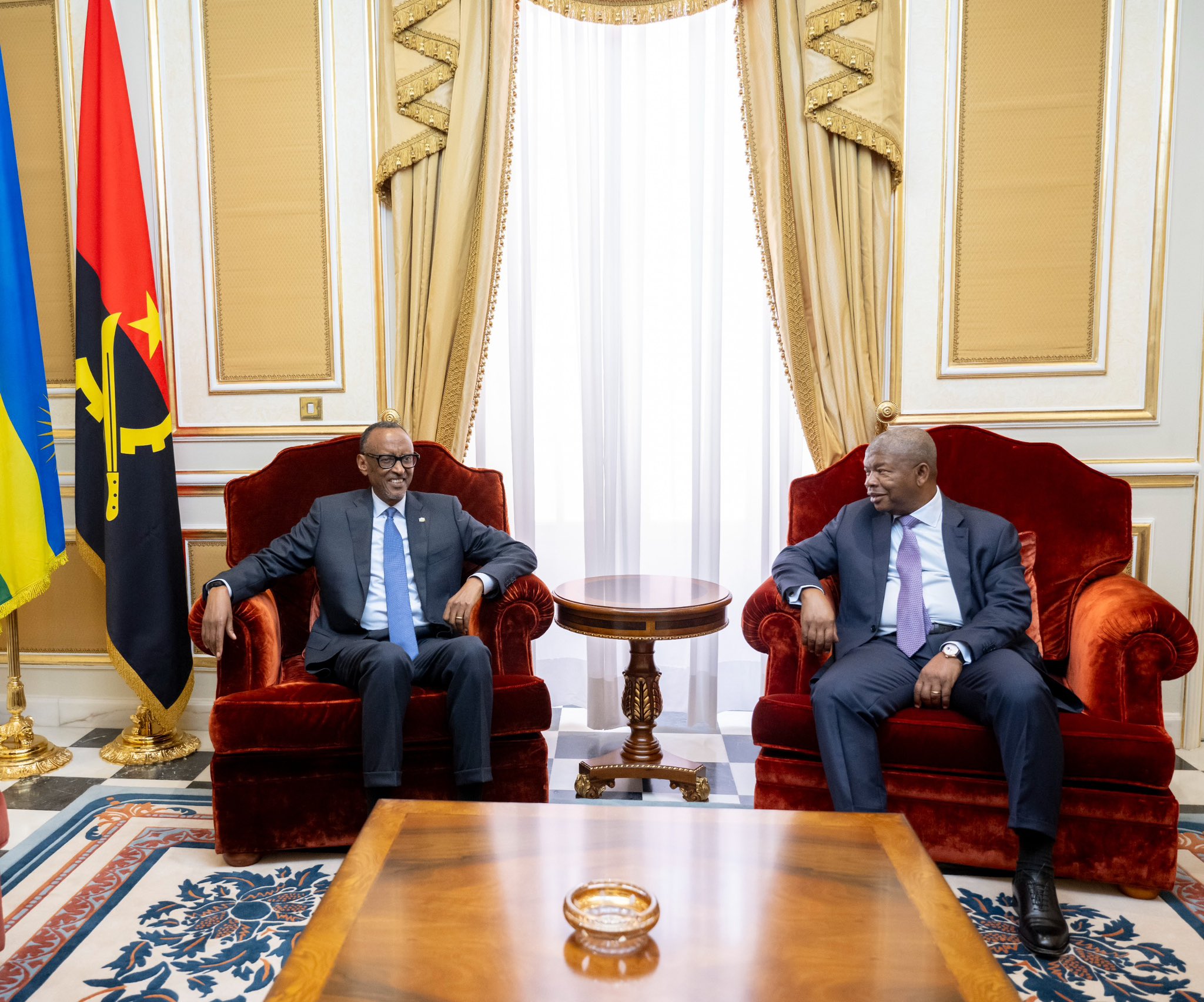President Paul Kagame and his Angolan counterpart, João Lourenço, held a bilateral ddiscussion Monday to address the escalating security situation in the Democratic Republic of Congo (DRC).
Amidst mounting tensions and regional instability, the two leaders deliberated on urgent measures to tackle the root causes of conflict and restore peace and stability in the region.
A key focus of the discussion was the concerning stance of DRC President Felix Tshisekedi, who has remained non-committal to resolving grievances raised by groups such as M23.
The failure to address these grievances has heightened tensions and increased the risk of further violence and instability in the region.
The deployment of troops by the Southern African Development Community (SADC) has also raised alarm bells, with fears of an imminent bloody conflict looming.
The militarization of the region threatens regional security and risks exacerbating the already volatile situation in the DRC.
The ongoing tensions between Rwanda and the DRC are directly linked to the presence of armed groups such as the Democratic Forces for the Liberation of Rwanda (FDLR) in Congolese territory.
President Tshisekedi’s threats to attack Rwanda and overthrow President Kagame have further strained relations between the two countries.
Moreover, the DRC has witnessed horrific ethnic killings, rape, and looting targeting Kinyarwanda-speaking Congolese communities.
Despite condemnation from the international community, President Tshisekedi has failed to take decisive action to address these atrocities, exacerbating tensions in the region.
While there were hints of a potential meeting between President Kagame and President Tshisekedi to discuss these pressing issues, neither leader has confirmed its occurrence.
The lack of dialogue and cooperation between the two countries has hindered efforts to find a peaceful resolution to the conflict in the DRC.
Against this backdrop, President Kagame and President Lourenço emphasized the importance of regional cooperation and collective action in addressing the root causes of conflict in the DRC.
They underscored the need for sustained efforts to promote dialogue, reconciliation, and inclusive governance to achieve lasting peace and stability in the region.
As the situation in the DRC continues to deteriorate, the collaboration between Rwanda, Angola, and other regional stakeholders remains critical in addressing the underlying drivers of conflict and fostering a conducive environment for peace and development in the Great Lakes region.



















